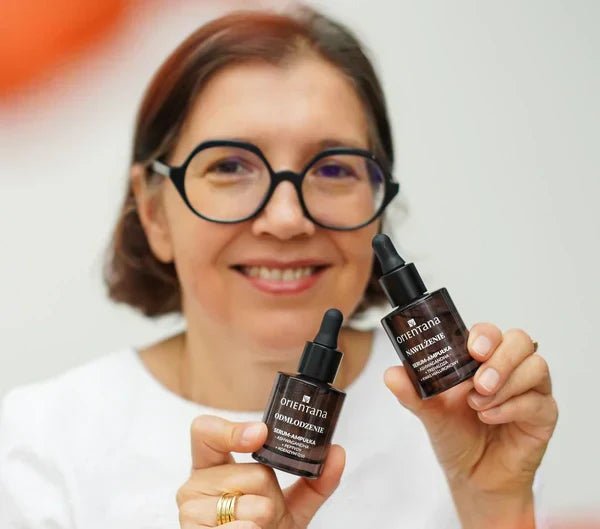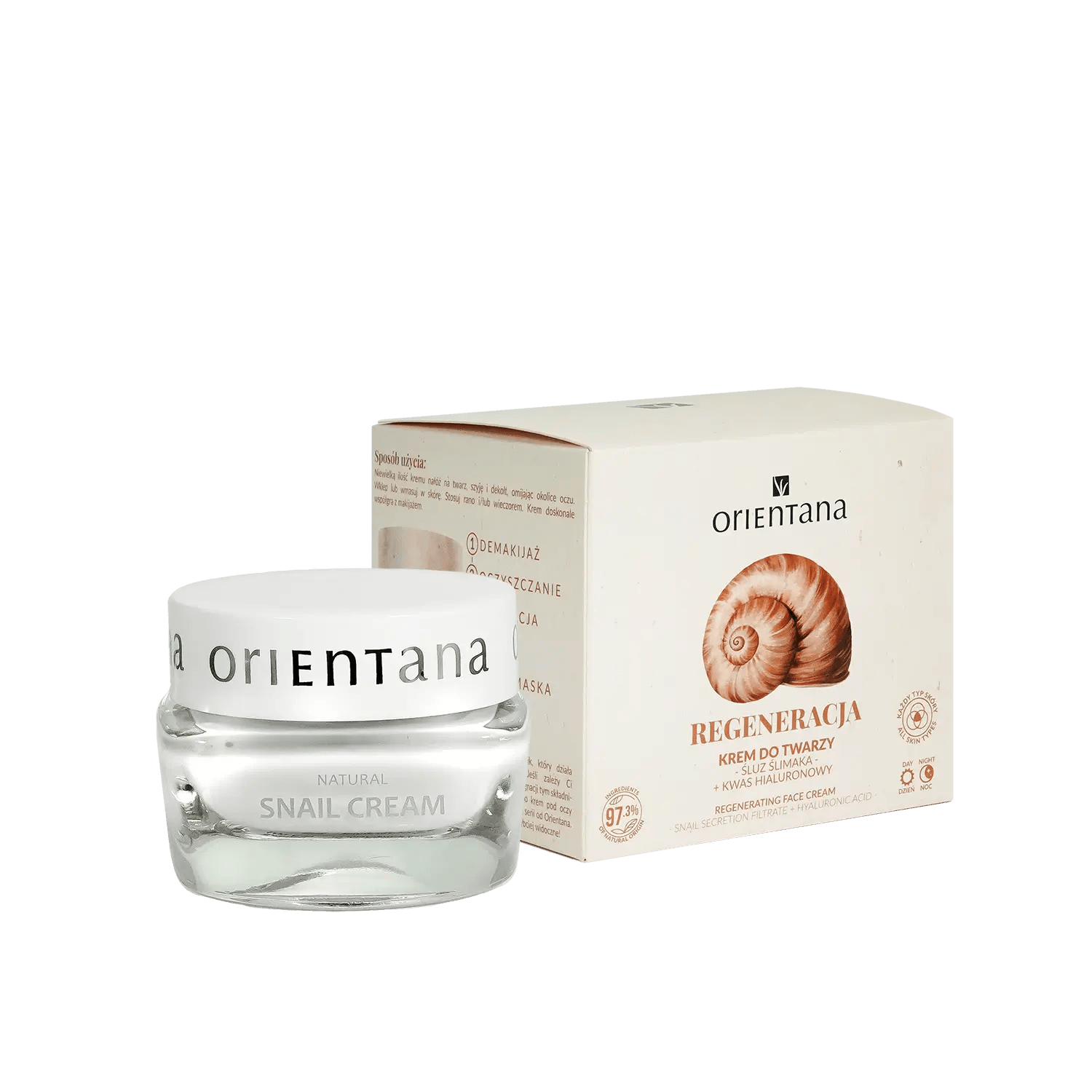In recent years, vegan cosmetics have gained popularity, becoming one of the most important trends in the cosmetics industry. Consumers are increasingly paying attention to the composition of products, their impact on the environment and the way they are manufactured. As a result, there is a growing interest in cosmetics that not only care for the skin, but also meet ethical and ecological needs. In this post, we will discuss what vegan cosmetics are, why it is worth choosing them, and what benefits come from using them.
What are vegan cosmetics?
Vegan cosmetics are products that do not contain ingredients of animal origin. They do not contain popular raw materials such as lanolin (from sheep wool), beeswax, keratin, royal jelly or collagen.
It is worth noting that vegan cosmetics are not the same as natural or organic cosmetics. Although these concepts often overlap, vegan cosmetics may contain synthetic ingredients, provided they are not of animal origin and are safe for health.
Are vegan cosmetics cruelty free?
Cruelty free is a term taken from English, which means "free from cruelty" and is used in relation to cosmetics that do not contribute to animal suffering in any way. It should be noted that this term should be used when the cosmetic meets at least several conditions, such as:
- the finished product has not been tested on animals in any country
- none of the raw materials contained in the cosmetic have been tested on animals
- the production of cosmetic packaging does not contribute to animal suffering
- the ingredients of the cosmetic do not cause any violation of animal welfare, e.g. tree felling
Cosmetics that are described as cruelty free do not have to be vegan or vegetarian. And vice versa! Just because a cosmetic is vegan or vegetarian does not mean that it is automatically cruelty-free. It may happen that strictly vegan ingredients or the finished product is sold on the Chinese market, where animal testing is required. Therefore, it is worth following brands that sell their cosmetics on the Chinese market. Unfortunately, all of them must undergo mandatory animal testing. Therefore, if we want to invest in cruelty-free cosmetics in the full sense of the word, it is better to give up on such brands.
It is also worth knowing that obtaining certificates confirming that cosmetics are vegan or cruelty-free is often subject to not only many regulations, but also very expensive. There are many brands that have high-quality cosmetics that are fully vegetarian or vegan and cruelty-free, but are not able to invest in international certification at the current stage of development.
In case of any doubts, it is worth checking the INCI composition of the cosmetic carefully and asking the company that produces it for detailed explanations.
Why is it worth choosing vegan cosmetics?
Ethics and animal care
One of the main reasons people choose vegan cosmetics is to protect animals. Traditional cosmetics production often uses ingredients of animal origin, and animal testing is still practiced in many countries. By choosing vegan cosmetics, consumers support a more humane approach to production, which leads to reduced animal suffering.
Ecology and sustainable development
The production of animal ingredients often involves a large burden on the environment. Animal farming generates significant greenhouse gas emissions, uses huge amounts of water and leads to the degradation of agricultural land. Vegan cosmetics, based on plant ingredients, tend to have a smaller ecological footprint. Many brands also focus on biodegradable packaging, which minimizes waste.
Health benefits
Vegan cosmetics are often gentler on the skin because they contain fewer potentially irritating ingredients. The plant extracts, oils and butters that form the basis of many vegan products are rich in vitamins, antioxidants and other nutrients.
Popular ingredients in vegan cosmetics
Vegan cosmetics are based on plant and synthetic ingredients that are both effective and safe. Here are some examples:
- plant extracts – known for their moisturizing, soothing and rejuvenating properties.
- vegetable oil – works great as a moisturizing and regenerating ingredient.
- vegetable butters – a natural emollient that protects the skin from drying out.
- Vitamin C – a natural antioxidant that brightens the skin and protects against free radicals.
- synthetic hyaluronic acid – provides intense hydration, reduces fine wrinkles and improves skin elasticity.
How to recognize vegan cosmetics ?
While there are more and more vegan cosmetics available on the market, identifying them can be a challenge. Here are some tips to help you choose the right products:
Composition analysis – It is worth reading the list of ingredients and avoiding substances of animal origin, such as keratin, honey, collagen, lanolin or carmine (a dye obtained from insects).
Trusted Brands – Choosing products from brands that we trust to make the vegan claim true. Let’s not buy cosmetics from Chinese websites.
Certificates – Products with certificates such as Vegan Society, Leaping Bunny or PETA Approved are a guarantee that the cosmetic is vegan and cruelty-free.
Unacceptable animal ingredients
In the INCI nomenclature (International Nomenclature of Cosmetic Ingredients), cosmetic ingredients are described in a standardized way, making it easier to identify their origin. Below is a list of the most common ingredients of animal origin, along with an explanation of their function and origin.
In the INCI nomenclature (International Nomenclature of Cosmetic Ingredients), cosmetic ingredients are described in a standardized way, which makes it easier to identify their origin. Below is a list of the most common ingredients of animal origin, along with an explanation of their function and origin:
Lanolin (Lanolin)
- What is it? Fat obtained from sheep wool.
- Application: Used as an emollient that moisturizes and protects the skin against moisture loss.
- Vegan alternative: Vegetable oil, shea butter, vegetable wax.
Beeswax (Alba Complexion, Beeswax)
- What is it? Natural wax produced by bees.
- Use: Emulsifier, creates a protective layer on the skin, used in lip balms and creams.
- Vegan alternative: Candelilla wax, carnauba wax, soy wax.
Keratin
- What is it? Protein obtained from animal hair, horns, or feathers.
- Application: Regenerates hair, giving it smoothness and shine.
- Vegan alternative: Plant proteins (e.g. rice, soy).
Collagen
- What is it? A protein found in the connective tissue of animals, mainly in skin and bones.
- Use: Moisturizes and improves skin elasticity, used in anti-wrinkle creams.
- Vegan alternative: Plant collagen (obtained from algae), hyaluronic acid.
Elastin (Elastin)
- What is it? A protein derived from the connective tissue of animals.
- Use: Gives the skin elasticity, used in anti-aging cosmetics.
- Vegan alternative: Plant extracts, e.g. from sea algae.
Carmine (Carmine, CI 75470)
- What is it? A red dye obtained from the dried bodies of cochineal insects.
- Use: Dye in lipsticks, eye shadows and blushes.
- Vegan alternative: Vegetable dyes, e.g. beetroot juice.
Tallow (animal tallow)
- What is it? Animal fat obtained mainly from cattle.
- Use: Used as an emollient and base substance in soaps.
- Vegan alternative: Vegetable fats, e.g. coconut oil, olive oil.
Glycerin (Glycerin)
- What is it? A hygroscopic substance that may be of plant or animal origin.
- Application: Moisturizes the skin and improves the consistency of cosmetics.
- Vegan alternative: Vegetable glycerin (e.g. from palm oil, coconut oil).
Squalene (Squalene)
- What is it? A fatty substance obtained from shark liver.
- Application: Moisturizes the skin, gives it softness and elasticity.
- Vegan alternative: Plant-based squalane (e.g. from olives, sugar cane).
Shellac
- What is it? Resin secreted by insects (lacquer maggots).
- Uses: Used in nail polishes and hair products.
- Vegan alternative: Synthetic or vegetable resins.
Hyaluronic Acid
- What is it? In cosmetics, it can traditionally be obtained from rooster combs.
- Application: Skin hydration, wrinkle reduction.
- Vegan alternative: Fermentative hyaluronic acid (obtained biotechnologically from yeast).
Guanine
- What is it? An ingredient obtained from fish scales, used to give cosmetics a pearly shine.
- Application: Eye shadows, nail polishes, lipsticks.
- Vegan alternative: Synthetic or plant-based pigments.
Stearic Acid
- What is it? A fatty acid that can be obtained from animal fats.
- Application: Used as an emulsifier and consistency stabilizer.
- Vegan alternative: Stearic acid from coconut or palm oil.
Lactose
- What is it? Milk sugar obtained from the milk of mammals.
- Application: Excipient in cosmetics, e.g. powders.
- Vegan alternative: Vegetable starch or maltodextrin.
Propolis (Propolis)
- What is it? A substance produced by bees from plant resins.
- Use: Antibacterial properties, used in anti-acne and regenerating products.
- Vegan alternative: Plant extracts, e.g. aloe vera, calendula.
Casein
- What is it? Milk protein.
- Uses: Used in hair and skin nourishing products.
- Vegan alternative: Plant proteins (e.g. soy, oat).
Silk (Silk, Serica)
- What is it? Protein obtained from silkworm cocoons.
- Application: Gives softness and shine to hair and skin.
- Vegan alternative: Oat or plant silk.
Knowing the ingredients of animal origin in the INCI nomenclature helps you make informed choices. If you want vegan cosmetics, it is worth using applications for analyzing ingredients, such as INCI Decoder or CodeCheck , and choosing products certified as vegan and cruelty-free. This way, you can care for your skin in accordance with your own ethical and ecological values.
Examples of vegan cosmetics
Vegan COSMETICS for the face
Kali Musli series for sensitive and vascular skin
Ayurvedic facial cosmetics series
Vegan hair cosmetics
Hair lotions
Henna for hair
Vegan body cosmetics
Fragrance oils for the body






